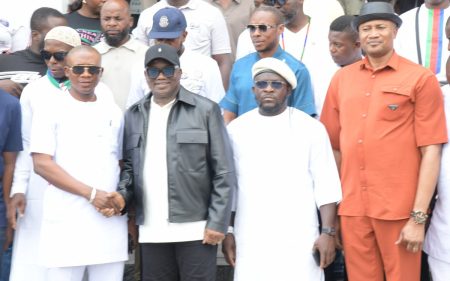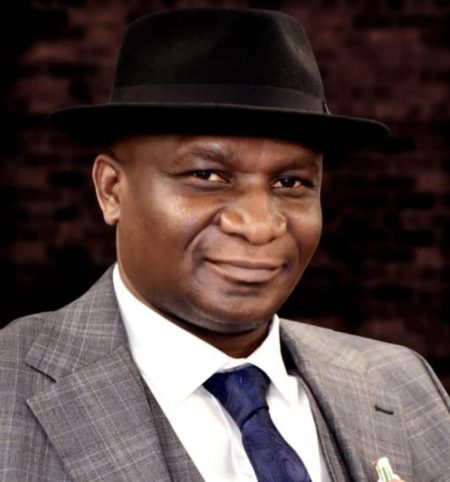
07 August 2015, Sweetcrude, Abuja — Amnesty International, has warned that the attempt by the Federal Government to clean up oil spills in Niger Delta will fail unless Shell Petroleum Development Company, improves its mechanism and show increased commitment in tackling the issue.
Meanwhile, the House of Representatives, has hailed President Muhammadu Buhari for his approval to fast track the long delayed implementation of the United Nations Environmental Programme, UNEP, in sanitising the environment of Ogoni land in Rivers State.
Similarly, the All Progressives Congress, APC, governorship candidate in Rivers State, Dr.
Dakuku Peterside and Centre for Peace and Environmental Justice, CEPEJ, have commended President Buhari for his courage in initiating the process of implementing the UNEP report on the restoration of the devastated Ogoni environment.
This came as SPDC, yesterday, said it had suspended gas supply to the Nigeria Liquefied Natural Gas, NLNG, with the declaration of a force majeure on gas supplies to LNG, export terminal on Bonny Island in Rivers State due to a pipeline leak. At the plenary of the House of
Representatives and speaking on the floor of the House, Mr Kingsley Chinda, (PDP, Rivers State), noted that the environmental degradation of Ogoni land due to the exploitation and exploration of crude oil has brought untold hardship to the people.
He said that the implementation of the UNEP report should be done on the grounds that the constitution of Nigeria (S. 20), which states that, “The state shall protect and improve the environment and safeguard the water, air and land, forest and wild life of Nigeria” of which the Niger Delta is inclusive.
Chinda also expressed worry that the Hydro Carbons Pollution Restoration Project ,HYPREP, was placed under the supervision of the Ministry of Petroleum Resources, which he described as a major polluter of the area. “The Ogoni people and indeed the entire Niger Delta continue to drink contaminated water and sea food is being scourged from the polluted water and the people of the community still process their foods in crude coated creeks.”
In the motion also sponsored by 58 others, Chinda urged the House to fully cooperate with President Buhari who has approved $2 billion in the implementation of the UNEP report. He said, “We are indeed talking about the entire world not just Nigeria only. I urge this House to support the motion, so that Nigeria will join the comity of nations which is pro active to environmental hazards.”
Environmental hazards
The House resolved to commission an environmental audit of the entire Niger Delta Region as well as order SPDC, to urgently carry out a joint environmental pollution audit of their areas of operation and come forward with an interim report to the House within 30 days for further legislative action.
The APC, governorship candidate in Rivers State, Dr Peterside, has commended President Buhari for his courage in fast-tracking the long expected implementation of the United Nations Environmental Programme, UNEP, on the environmental restoration of Ogoniland in the state. Peterside who spoke in Abuja, expressed happiness over the President’s actions, saying it will eventually address all environmental issues in Ogoniland.
He said, “Once again, Mr. President has demonstrated that he is a man of honour. During his campaign stops in Rivers State shortly before the election, he promised our people that his government would look into the UNEP report and the challenges facing the people of Niger Delta and less than three months into his administration, he has already taken a giant step in this regard.”
On his part, CEPEJ in a statement by its national coordinator, Sheriff Mulade, said “The President’s gesture is an indication that he has a listening ear and was poised to develop every part of the country. The President has shown by this directive that he means well for the country. From the look of things since he mounted the saddle, Buhari’s keeping to his avowed commitment to work for the development and well-being of all Nigerians.”
He urged the President to draw up a holistic plan for the total restoration of the whole Niger Delta region to its pristine nature, bemoaning the degree of degradation caused by over 50 years of oil exploration and exploitation activities in the region. Meanwhile, Amnesty International, yesterday, warned that the attempt by the Federal Government to clean up oil spills in Niger Delta will fail unless Shell improves its mechanism and show increased commitment in tackling the issue.
Amnesty International, in a statement from its headquarters, said Shell must match the Federal Government’s renewed commitment to tackling oil pollution in the Niger Delta by dramatically improving how it cleans up spills. “It is scandalous that Shell – which now wants the world to trust it to drill in the Arctic – has failed to properly implement the UN’s expert advice on oil spill response after so long. President Buhari’s initiative will fail, and the Ogoni people will continue to suffer, as long as Shell fails to make significant changes to the way it approaches oil spill clean-up,” Mark Dummett, Amnesty International’s Researcher on Business and Human Rights, who has just returned from the Niger Delta stated.
Dummet stated that Ogoniland has been devastated by years of oil spills and Shell’s clean-up operations have been utterly ineffective, despite the UNEP report on the issue.
On the suspension of gas supply, spokesperson for Shell, Mr. Precious Okolobo, stated that the company declared force majeure on gas supplies from SPDC to Nigeria Liquefied Natural Gas, NLNG, effective August 4. He, however, stated that the company was investigating the cause of the leak.
Also commenting on the issue, Tony Okonedo, a spokesman for NLNG, said that exports had so far been unaffected but that the company was discussing potentially rescheduling some shipments with its customers. NNPC holds a 49 per cent stake in NLNG and the rest is owned by oil majors Shell, Total and Italy’s Eni.
The NLNG can produce 22 million metric tonnes of liquefied gas per year and has long-term supply contracts with buyers in Italy, Spain, Turkey, Portugal and France and also sells on the spot market.
Shell had in May halted crude exports due to a leak in the Trans Forcados pipeline, following which it declared a force majeure. With a capacity of 400,000 barrels of crude per day, Forcados is one of Nigeria’s main export terminals. Two months later, in July specifically, the company lifted the force majeure following the completion of repairs on the pipeline. Force majeure is a legal term releasing a company from contractual obligations when faced with circumstances beyond its control.
*Emma Amaize, Gbenga Oke, Emman Ovuakporie, Michael Eboh & Johnbosco Agbakwuru – Vanguard



